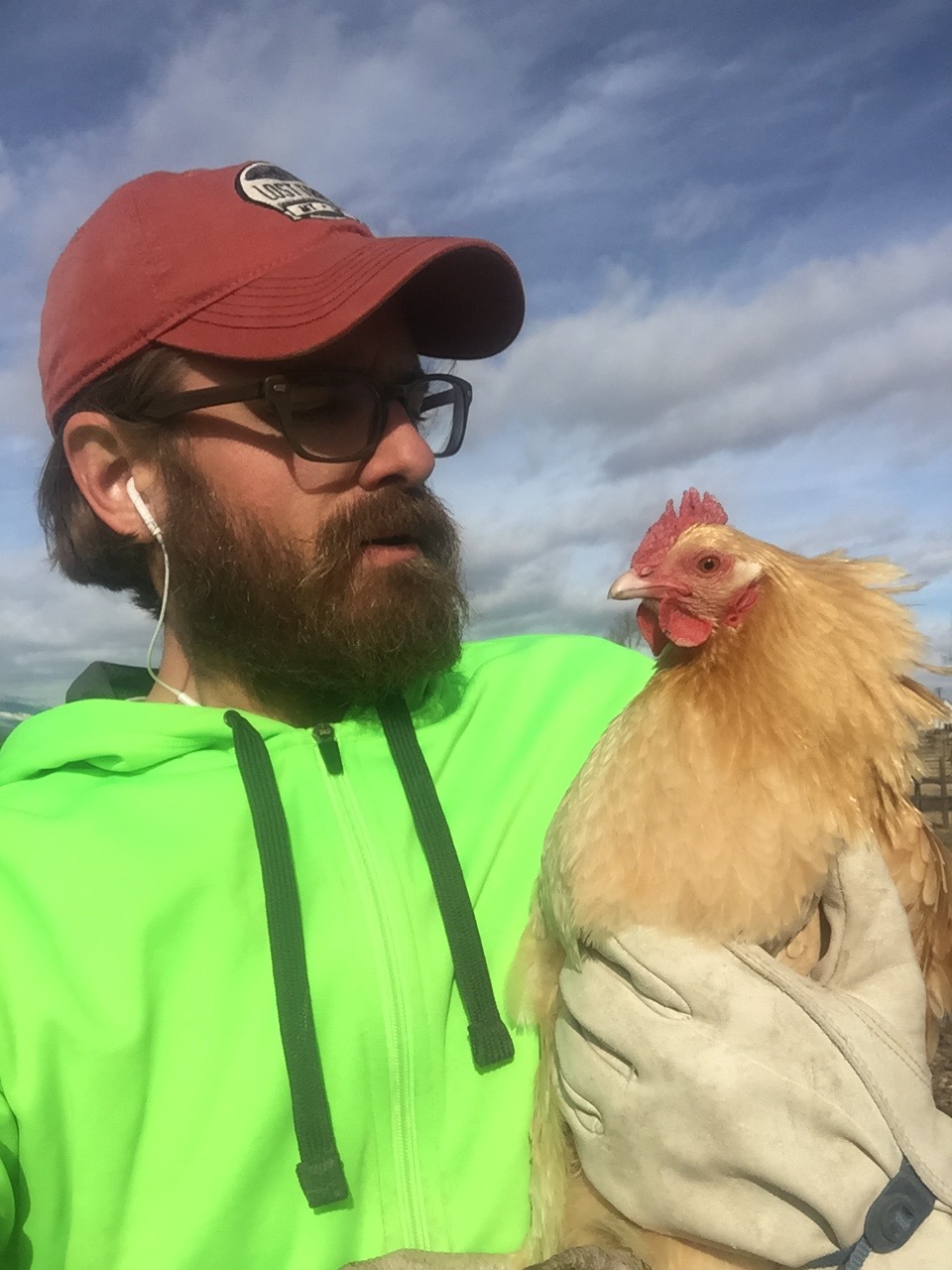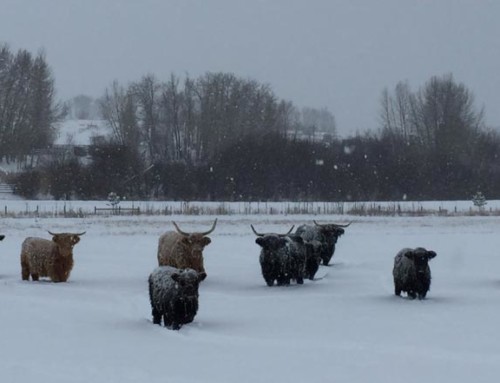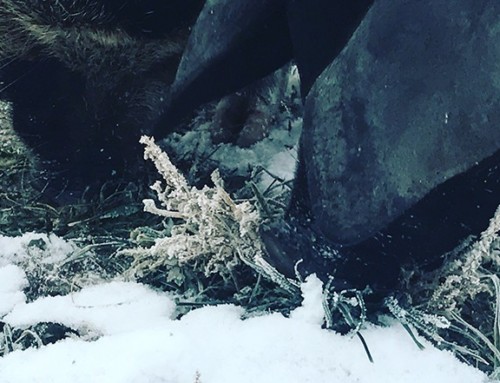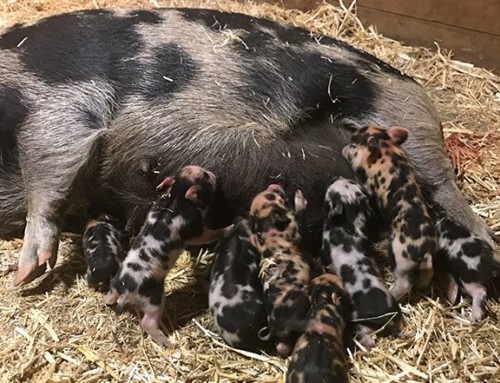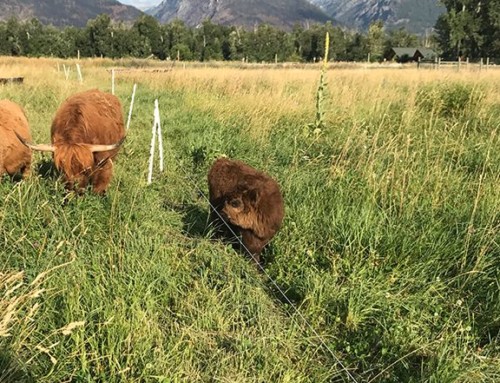For two days last week I managed the morning and evening animal chores alone. I spent my two days singing to the animals. I spent my two days watching the animals and trying to understand how they see me. In short, I spent my two days being patient, being mindful, and being still.
Grant, the farm manager here at ABC Acres and my comrade-in-arms, was considerate and thorough in preparing me for my solo work. The biggest wild card on the animal chores circuit is Porky, the sow who recently gave birth and is still living in the barn with her new litter of piglets. I practiced feeding and watering her with Grant looking on. His suggestion, beyond feeding specifics, which I took to heart the most was, “After you put the food down, pet her and talk to her.” It was good advice.
As a graduate student I was deeply interested in posthumanism, a philosophy that dethrones humans as the center of the universe and distributes agency–the capacity to act–equally among nonhuman agents: animals, plants, computers, and pretty much everything else. One of my favorite posthumanist books, by Donna Haraway, When Species Meet, states that while animals can’t understand human speech, they can certainly understand and interpret tone and energy. We are, according to Haraway, attuned to our animals, to our companions. As an animal person, this resonates with me. My wife has mastered a specific tone that lets animals know that she means no harm and animals seem to love it. I, too, have a tone that hopefully conveys the same message, but I find that I actually prefer to sing gently to myself while working with animals, and much to my surprise I think it has the same effect. As any concert-goer knows, music has an infectious energy that spreads through the melody putting listeners–animal and human alike–at ease.
One similarity between farming and teaching, and perhaps all professions, is the undervaluing of hard to quantify “soft skills.” In academia, mentorship is an unacceptably under-appreciated service that, despite being one of the largest influences on students’ success in school, is considered a soft skill among professors. Similarly, keeping animals at ease would likely be considered a soft skill, probably not highly sought after or easily transferable between farmers. And yet, in a tangible profession such as farming, the quality of “life-on-the-farm” seems to be greatly influenced by such soft skills as the relationships between humans and animals and not just the end products of those labors (bales of hay, pounds of meat, etc.).
Beyond the details of caring for, and being attuned to, the animals on the farm, my solo chores also helped me realize how fast I was moving. In a society that prizes economy of movement, efficiency, and reduction of waste, I feel clumsy, naive, and slow. But as an apprentice farmer I am seeing an opportunity to reconsider the definitions of wastefulness and usefulness. It is not wasteful to take stock of the animals; it is useful to learn their habits and mannerisms. It is not wasteful to adapt to and try new things; it is useful to innovate and explore alternative ways of getting things done. It is not wasteful to pause and reflect; it is useful to take the time to learn and grow from experience. It is not wasteful to be still; it is useful to connect with the tone and energy of your animals, to feel the change of the seasons, and to be attuned to your environment.

